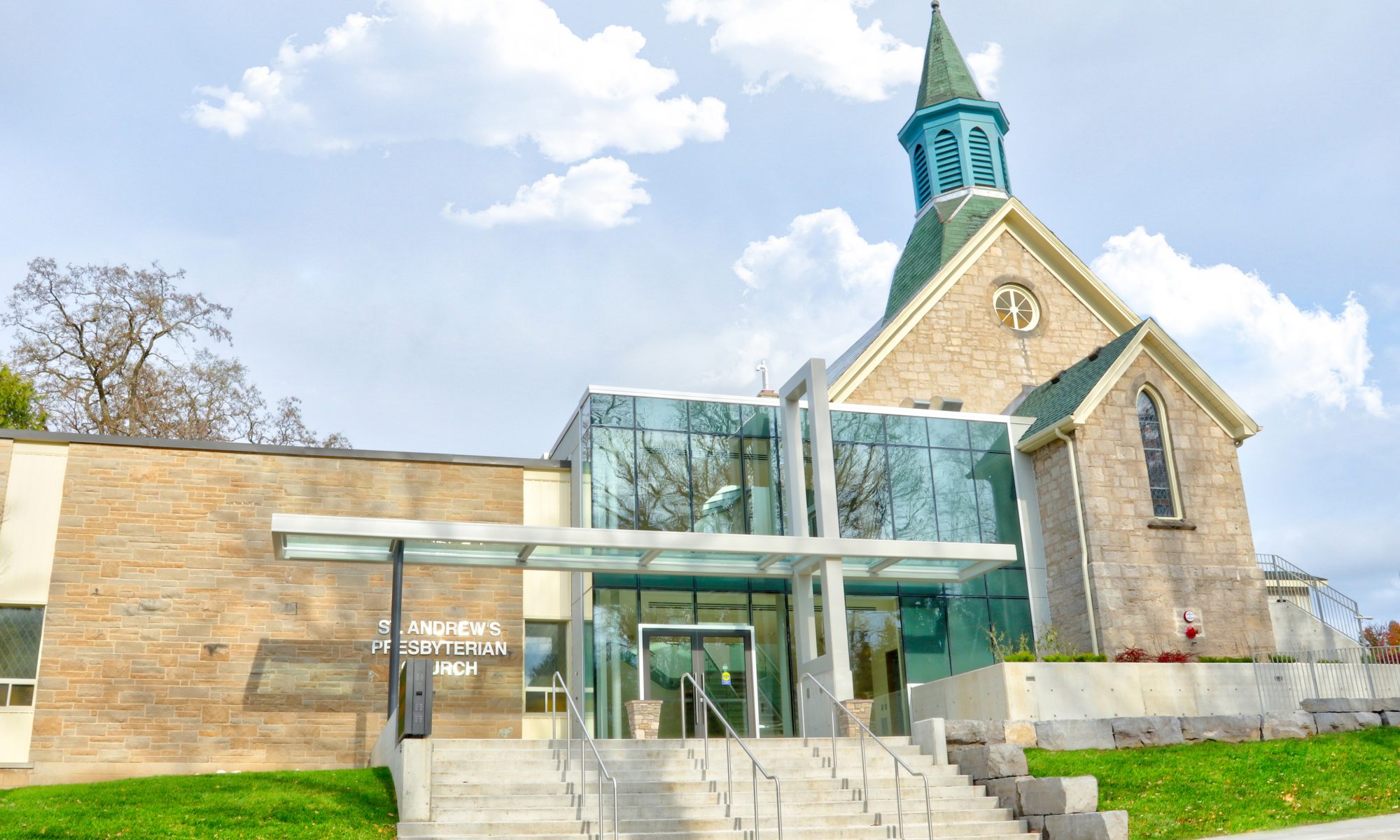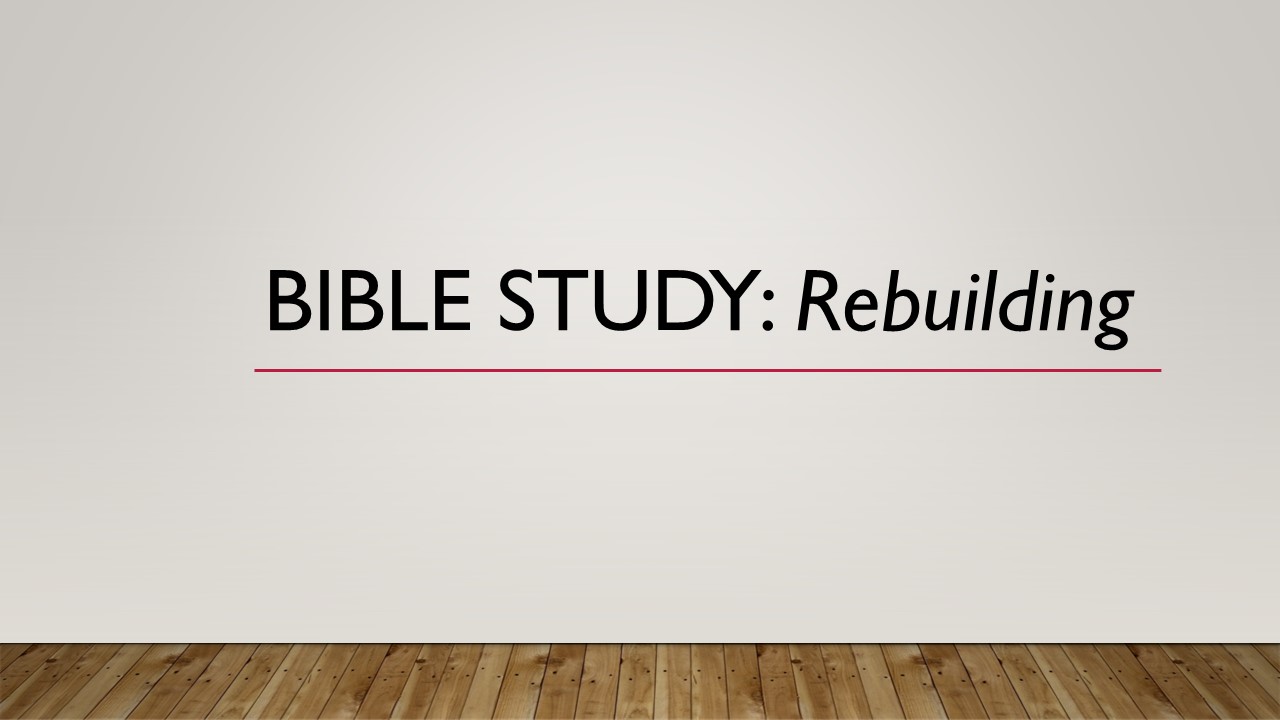Study Video
This Bible Study goes along with Parts 3 & 4 of the sermon series we’re working through at St. Andrew’s called “Rebuilding.” If you haven’t listened to these messages from February 27 and March 6 you can find them HERE and HERE.
Nehemiah Chapters 4, 5, 6
As I mention in part 3 of the Rebuilding series, these 3 chapters are all connected. They describe a series of obstacles to the work of rebuilding – some take the form of external opposition, while other obstacles come from within. Take some time to read all three chapters as a unit, then pause and consider what stands out to you in this part of the story. Are the external and internal issues separate or are they connected? You may want to come back to this question after you have looked at each chapter on its own.
Chapter 4
This chapter was the primary focus of the message from February 27. As you read it take note of the different forms of opposition faced by the people of Jerusalem and Judah. Take note of how Nehemiah responds (or doesn’t respond) and the way he’s able to keep the rebuild going forward safely.
Questions:
-
- Think of times in your life when you have faced opposition – in the form of ridicule, threats or direct attempts to control you. How did that make you feel? How did you respond?
- Where does prayer fit into your response to opposition? Is praying about the situation your first, second or last response? How might giving the situation over to God change how you handle opposition? How might it change the way you relate to people or systems that seem to be opposing you?
- Have you ever stood guard over someone or some situation in prayer? Have you ever had someone, or some group of people do that for you? What difference did this make for you or for the situation you prayed for? Is this something you could see yourself doing today?
Chapter 5
This chapter was the primary focus of the message from March 6. As you read it take note of the specific issues raised by the ordinary people in Judah, and by Nehemiah. Take note also of how Nehemiah responds to these issues, and how he models a different approach from many of the leaders who came before him.
Questions:
-
- In the message we reflect on how honest the Bible is about the failures, shortcomings and sins of the people of Israel. How honest and open are you about your sins and mistakes? How open and honest are most Christians about these kinds of things? How transparent are we as a church about these kinds of things?
- The internal issues in Nehemiah 5 are a case of some in Judah falling back into old habits. How easy or difficult do you find it to live in the new patterns and behaviours taught by Jesus and the rest of Scripture? How often do you find yourself going back to old habits, or ways of living that are normal in our society but don’t really line up with what the Bible teaches?
- In the message we look at Nehemiah as an example of how to approach faith and God’s calling in a selfless way in contrast to the more self-centered or selfish approach of other leaders in Judah. What are some ways that we might be approaching church and faith from the perspective of “what’s in it for me?” What are some things that we can do to check ourselves and make sure that we are practicing our faith with the right motivations?
- Bonus Question: How familiar are you with what the Bible teaches about lending and charging interest? Read Exodus 2:25-27, Leviticus 25:36-38 and Deuteronomy 23:19-20, and Psalm 15. These teachings come out of a very different time and place from ours, but how might they affect how we handle loans, borrowing, or how we try to help people in need?
Chapter 6
This chapter wasn’t dealt with directly in either of the messages, but in many ways ties the themes of internal and external obstacles together. As you read it look for both kinds of obstacles and see how they interact with each other.
Questions:
-
- In verses 1-9 Nehemiah has to deal with an attack on his character, and potential slander. Is this something you have had to deal with? Does Nehemiah offer us a helpful approach for dealing with this kind of thing?
- Verses 10-19 show that a number of people in Judah opposed to the rebuilding, or causing difficulties, were working with or had connections to the neighbouring people who were opposed to the rebuilding. Why do you think they chose to do this? Are there times when our loyalties to the world around us compromise our loyalty to God and God’s mission?

